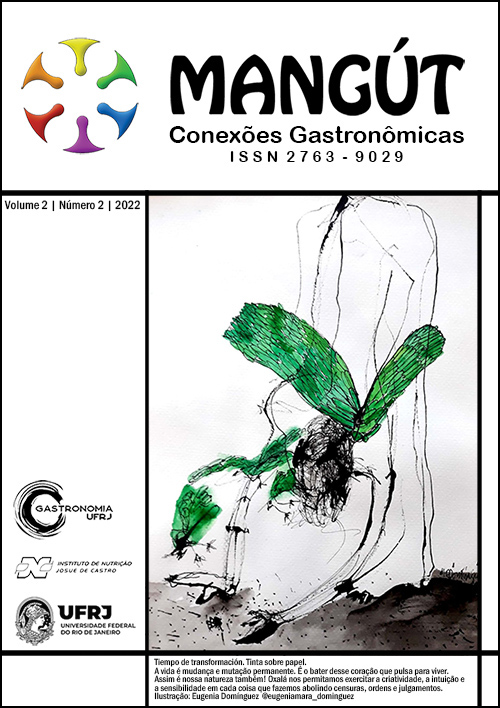O processo de regulamentação dos profissionais de nível superior em gastronomia e suas demandas
DOI:
https://doi.org/10.70051/mangt.v2i2.52325Palavras-chave:
Gastronomia, Regulamentação, Processo Legislativo,Resumo
Este trabalho objetivou estudar Projetos de Leis (PLs) que apresentam propostas para a regulamentação dos profissionais de nível superior em gastronomia. Utilizou-se metodologia do tipo quantitativa e qualitativa, com análise de dados descritivos, como também do tipo bibliográfico, baseado em artigos científicos e em dados do Ministério da Educação. Para o levantamento sobre PLs que tratam da regulamentação da referida profissão foram realizadas pesquisas no site do Congresso Nacional, do Governo Federal e instituições legislativas. Identificou-se cinco PLs, em que dois foram arquivados e três encontram-se em tramitação, contudo, com matérias que se diferenciam, principalmente quanto à descrição das atribuições e exigências para o profissional. Foi constatado, que os PLs não levam em consideração as formações de bacharéis e tecnólogos; e desse modo, para que a regulamentação avance, sugere-se organização, pesquisa e discussão sobre as atribuições das duas categorias e, que considerem ainda os profissionais que já atuam no mercado. Portanto, a criação de uma associação poderia ser um passo inicial para a conquista dessa regulamentação e, consequentemente, para o conselho de classe.
Downloads
Publicado
Edição
Seção
Licença
Copyright (c) 2023 Paulo Eduardo Martins de Lima, EVELINE ALENCAR COSTA, LEANDRO PINTO XAVIER

Este trabalho está licenciado sob uma licença Creative Commons Attribution 4.0 International License.
Autores que publicam nesta revista concordam com os seguintes termos:
- Autores mantém os direitos autorais e concedem à revista o direito de primeira publicação, com o trabalho simultaneamente licenciado sob a Licença Creative Commons Attribution que permite o compartilhamento do trabalho com reconhecimento da autoria e publicação inicial nesta revista.
- Autores têm autorização para assumir contratos adicionais separadamente, para distribuição não-exclusiva da versão do trabalho publicada nesta revista (ex.: publicar em repositório institucional ou como capítulo de livro), com reconhecimento de autoria e publicação inicial nesta revista.
- Autores têm permissão e são estimulados a publicar e distribuir seu trabalho online (ex.: em repositórios institucionais ou na sua página pessoal) a qualquer ponto antes ou durante o processo editorial, já que isso pode gerar alterações produtivas, bem como aumentar o impacto e a citação do trabalho publicado (Veja O Efeito do Acesso Livre).



